As we kick of a new decade of software development and testing, and as digital continuous to challenge test automation engineers that are trying to fit the testing within shorter then ever cycles, here are the top recommended software testing books to consider – the order isn’t the priority, they are all awesome books and equally recommended:
#1 Agile Testing – Lisa Crispin and Janet Gregory
Readers will come away from this book understanding
- How to get testers engaged in agile development
- Where testers and QA managers fit on an agile team
- What to look for when hiring an agile tester
- How to transition from a traditional cycle to agile development
- How to complete testing activities in short iterations
- How to use tests to successfully guide development
- How to overcome barriers to test automation
#2 More Agile Testing – Lisa Crispin and Janet Gregory
Main learning objectives from the book:
- How to clarify testing activities within the team
- Ways to collaborate with business experts to identify valuable features and deliver the right capabilities
- How to design automated tests for superior reliability and easier maintenance
- How agile team members can improve and expand their testing skills
- How to plan “just enough,” balancing small increments with larger feature sets and the entire system
- How to use testing to identify and mitigate risks associated with your current agile processes and to prevent defects
- How to address challenges within your product or organizational context
- How to perform exploratory testing using “personas” and “tours”
- Exploratory testing approaches that engage the whole team, using test charters with session- and thread-based techniques
- How to bring new agile testers up to speed quickly–without overwhelming them
#3 Hands on Mobile App Testing – Daniel Knott
Readers will learn how to
- Establish your optimal mobile test and launch strategy
- Create tests that reflect your customers, data networks, devices, and business models
- Choose and implement the best Android and iOS testing tools
- Automate testing while ensuring comprehensive coverage
- Master both functional and nonfunctional approaches to testing
- Address mobile’s rapid release cycles
- Test on emulators, simulators, and actual devices
- Test native, hybrid, and Web mobile apps
- Gain value from crowd and cloud testing (and understand their limitations)
- Test database access and local storage
- Drive value from testing throughout your app life-cycle
- Start testing wearables, connected homes/cars, and Internet of Things devices
#4 Enterprise Continuous Testing – Wolfgang Platz
Enterprise Continuous Testing: Transforming Testing for Agile and DevOps introduces a Continuous Testing strategy that helps enterprises accelerate and prioritize testing to meet the needs of fast-paced Agile and DevOps initiatives. Software testing has traditionally been the enemy of speed and innovation—a slow, costly process that delays releases while delivering questionable business value. This new strategy helps you test smarter, so testing provides rapid insight into what matters most to the business.
#5 Continuous Testing for DevOps Professionals – Eran Kinsbruner and Leading Market Experts
Continuous Testing for DevOps Professionals is the definitive guide for DevOps teams and covers the best practices required to excel at Continuous Testing (CT) at each step of the DevOps pipeline. It was developed in collaboration with top industry experts from across the DevOps domain from leading companies such as CloudBees, Tricentis, Testim.io, Test.ai, Perfecto, and many more.The book is aimed at all DevOps practitioners, including software developers, testers, operations managers, and IT/business executives
#6 Accelerate –The Science of Lean Software and DevOps, Nicole Forsgren
How can we apply technology to drive business value? For years, we’ve been told that the performance of software delivery teams doesn’t matter―that it can’t provide a competitive advantage to our companies. Through four years of groundbreaking research to include data collected from the State of DevOps reports conducted with Puppet, Dr. Nicole Forsgren, Jez Humble, and Gene Kim set out to find a way to measure software delivery performance―and what drives it―using rigorous statistical methods. This book presents both the findings and the science behind that research, making the information accessible for readers to apply in their own organizations.
#7 Complete Guide to Test Automation, Arnon Axelrod
- Know the real value to be expected from test automation
- Discover the key traits that will make your test automation project succeed
- Be aware of the different considerations to take into account when planning automated tests vs. manual tests
- Determine who should implement the tests and the implications of this decision
- Architect the test project and fit it to the architecture of the tested application
- Design and implement highly reliable automated tests
- Begin gaining value from test automation earlier
- Integrate test automation into the business processes of the development team
- Leverage test automation to improve your organization’s performance and quality, even without formal authority
- Understand how different types of automated tests will fit into your testing strategy, including unit testing, load and performance testing, visual testing, and more
#8 The DevOps Handbook, Gene Kim, Jez Humble, Patrick Debois, John Willis
More than ever, the effective management of technology is critical for business competitiveness. For decades, technology leaders have struggled to balance agility, reliability, and security. The consequences of failure have never been greater―whether it’s the healthcare.gov debacle, cardholder data breaches, or missing the boat with Big Data in the cloud. And yet, high performers using DevOps principles, such as Google, Amazon, Facebook, Etsy, and Netflix, are routinely and reliably deploying code into production hundreds, or even thousands, of times per day. Following in the footsteps of The Phoenix Project, The DevOps Handbook shows leaders how to replicate these incredible outcomes, by showing how to integrate Product Management, Development, QA, IT Operations, and Information Security to elevate your company and win in the marketplace
#9 The Digital Quality Handbook – Eran Kinsbruner and Industry Experts
As mobile and web technologies continue to expand and basically drives large organizational business in virtually every vertical or industry, it is critical to understand how to take existing release practices for mobile and web apps to the next level, including software development life cycle (SDLC), tools, quality, etc. Organizations which are already enjoying the power of digital are still struggling with various challenges that can be related to many factors, such as:
- SDLC and processes maturity
- Expanding test coverage to include more non-functional testing, user condition testing, etc.
- Coping with existing limitations of open source tools and frameworks
- Sustaining correctly sized and up-to-date mobile test labs
- Getting proper quality insights upon each test cycle prior and post production
- Branching wisely cross-platform and cross-feature test suites
#10 Specification by Example , How Successful Teams Deliver the Right Software, Gojko Adzic
Gojko has a list of great books, this is one of the great ones, but check out other of his books as well.
Specification by Example is an emerging practice for creating software based on realistic examples, bridging the communication gap between business stakeholders and the dev teams building the software. In this book, author Gojko Adzic distills interviews with successful teams worldwide, sharing how they specify, develop, and deliver software, without defects, in short iterative delivery cycles.
#11 Clean Code, A Handbook of Agile Software Craftsmanship, Robert C. Martin
Readers will come away from this book understanding
- How to tell the difference between good and bad code
- How to write good code and how to transform bad code into good code
- How to create good names, good functions, good objects, and good classes
- How to format code for maximum readability
- How to implement complete error handling without obscuring code logic
- How to unit test and practice test-driven development
#12 Continuous Delivery, Reliable Software Releases through Build, Test, and Deployment Automation, Jez Humble and David Farley
The authors introduce state-of-the-art techniques, including automated infrastructure management and data migration, and the use of virtualization. For each, they review key issues, identify best practices, and demonstrate how to mitigate risks. Coverage includes
- Automating all facets of building, integrating, testing, and deploying software
- Implementing deployment pipelines at team and organizational levels
- Improving collaboration between developers, testers, and operations
- Developing features incrementally on large and distributed teams
- Implementing an effective configuration management strategy
- Automating acceptance testing, from analysis to implementation
- Testing capacity and other non-functional requirements
- Implementing continuous deployment and zero-downtime releases
- Managing infrastructure, data, components and dependencies
- Navigating risk management, compliance, and auditing
#13 The Guide to Software Testability, Ash Winter and Rob Meaney
Learn practical insights on how testability can help bring teams together to observe, control and understand the systems they build. Enabling them to better meet customer needs, achieve a transparent level of quality and predictability of delivery.
#14 A Practical Guide to Testing in DevOps, Katrina Clokie
A Practical Guide to Testing in DevOps offers direction and advice to anyone involved in testing in a DevOps environment
#15 Test Automation University, Angie Jones and Applitools
While not a book, a great shout out to my colleague, friend and co-author in one of my above mentioned books Angie Jones for launching, leading and building the Test Automation University. This is obviously an additional online resource that complements books and other written material.
Summary
I am sure that there are plenty of other great and practical books, but i went with this list as a start. If you feel that there must be an additional up to date book, reach out to me, and I will be more than happy to add to this list.
Happy Reading!




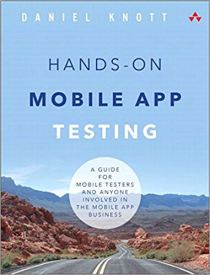


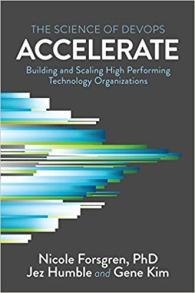

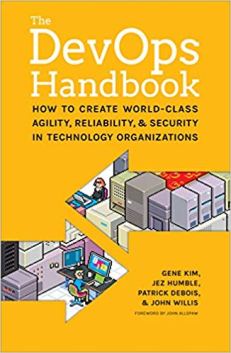
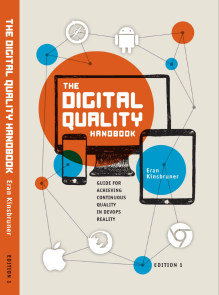
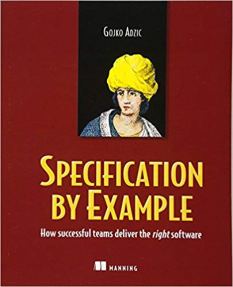

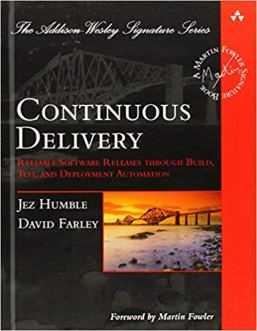



Delighted to mentioned in the above list but my co-author is Ash Winter rather than my friend Ash Coleman
Hi Rob, Of course and sorry for my mistake, it is now fixed.
This is a life saver. I have been looking for books that would enhance my software testing knowledge and this list is perfect. I read The Phoenix Project before, loved it through & through, even wrote a blog on it – https://www.cigniti.com/blog/digital-transformation-continuous-agile-devops-testing/
Looks like a good list. Will definitely read them!